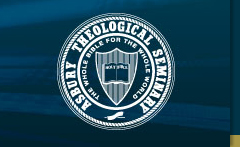This work is accessible only to Asbury Theological Seminary faculty, staff, and students. Off-Campus users should request the resource through our Library Loan system or contact the Help Desk for assistance.
Files
Download Full Text (7.9 MB)
Summary
Business as mission (BAM) is an emerging term and a developing concept. There has been much fascination in both mission and business circles with the concept of strategically using business to accomplish missional purposes. Conferences and consultations have been held around the world. As a frequent participant it has become clear to me that though the term is ubiquitous in mission circles, there is great disparity in what it means. There has been much talk about BAM in theory, but far less research done on how it works out in reality. The purpose of this study is to take an in-depth look at business as mission in a single cultural context, namely Chiang Mai, Thailand. This research project is based on a seven month long research project involving twelve businesses and 128 interviews. With a focus on cross-cultural missionaries operating businesses, five businesses are featured as detailed case studies. The research findings demonstrate that there are several key factors that determine effectiveness in arriving at business and ministry objectives. Most interestingly, those BAM practitioners that have a single focus on producing conversions are remarkably less effective in generating conversions than missionaries who have multiple goals for the BAM enterprise. Furthermore, there are demonstrable differences between BAM enterprises that partner with local ministries and those that do not in terms of ministry impact according to stated goals. Tremendous variation was found among BAM enterprises regarding experience, strategy, and results. One of the most striking criterion that directly impacted ministry and business objectives was the level of cross-cultural adaptation. Those with high levels of cultural adaptation had more spiritual influence on their employees and a more satisfied and stable workforce that resulted in more productive businesses. Those with low levels of cultural adaptation had significantly less spiritual impact on their employees and had tremendously higher employee turnover, resulting in tumultuous and unprofitable business environments. Several other issues emerged, that BAM practitioners and mission agencies should consider as well, such as soundness of business model, relationship of business and ministry strategies, and the Thai Buddhist conversion process.
OCLC
423080686
Control number
423080686
Publication Date
2008
Publisher
Asbury Theological Seminary
Keywords
Missions, Religious, aspects, Christianity, Chiang Mai, Thailand, Business, 423080686
Language
English


Comments
xv, 296 leaves ; 28 cm. Includes bibliographical references (leaves 228-296). Old URL: http://ecommons.asburyseminary.edu/xmlui/handle/10910/12861